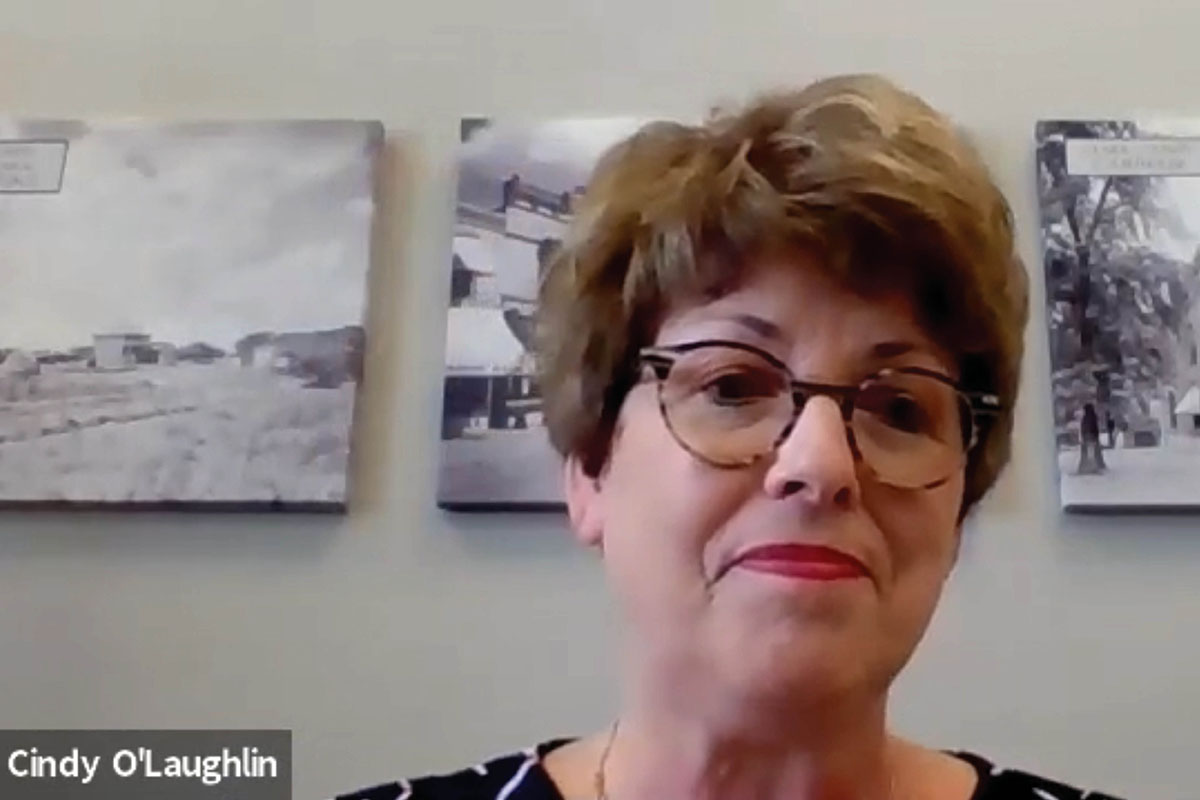In February 2020, Senator Cindy O’Laughlin from District 18 covering 14 counties in the northeastern part of the state was named Chair of the Missouri Senate Education Committee. As a senator, business owner, and mother, Cindy has made the quality of education one of her top priorities. Watch our interview with Cindy discussing what she believes must happen to strengthen education in our state and region or read her responses below.
Before we dive into education, it’d be great to hear a bit more about your background and why you chose to run for public office. And why focus on education?
As a mother and grandmother, but also a business owner, I saw many things going in a negative direction. Rather than just complain to others I thought I could help find solutions. I also felt it would require someone willing to state the truth and not always worry about the next race. I enjoy my job but I have a family and many interests. I can tackle a controversial topic and not feel I must worry whether people agree and will vote for me “next time.” Education is the key to every other success so it tops my list in importance.
I know from previous discussions and from trips that you’ve made to St. Louis that you are committed to getting out of the office and into communities and schools and want to hear directly from parents, children, and teachers. What are you hearing?
The most common thing I hear in places like St. Louis is that we need more options for kids who are in failing districts. Parents are sometimes nearly distraught that their children are locked in failing schools. I also hear about a disconnect between DESE mandates and the classroom. Education initiatives are stifled by the heavy hand of bureaucracy. To be fair, we also need to work to stabilize families and produce independent, resilient young people.
In our work advocating for children and the unique educational needs in urban areas, we often find a number of our legislators are unaware or unfamiliar with these issues that we are facing. We also find that some are not aware of the many success stories in other urban schools across the nation that show us so much more is possible. How can we help our legislators to better understand our unique challenges and what is possible?
We must first remove party politics. I do this by emphasizing the commonality of issues such as family dysfunction, poverty and mental health. Rural and urban areas have the same issues.
I like to take as many legislators as possible on school tours. This is something that I have been doing in my own district frequently. We’ve organized different meetings for the education committees throughout the state, and I think that continuing that is very influential.
I also think that engaging members of the community that aren’t legislators is crucial too, like faith and business leaders. Our strongest schools are the ones that are tied heavily to the communities that they serve.
We believe that one of the biggest impediments to improving the quality of public education in our state is our weak accountability system. Just about half of Missouri’s children can read on grade level by third grade, a milestone that has significant implications for the rest of their education and life, and for our workforce and competitiveness; yet, all but 2% of school districts are fully accredited. This provides no incentive for schools to improve and also doesn’t facilitate schools and districts in learning from one another. Do you plan to address this? If so, how?
Yes, I actually filed a bill that did just that. It was designed to hold districts accountable, and would require districts in the bottom 5% for three consecutive years to consult with an outside organization to make improvements. I also have filed legislation on reading success in our schools to specifically help students with reading challenges. Those pieces of legislation will be priorities of mine again next year.
What do you see as the top three changes we must make to improve education in our state? What are ways that our community of educators, business, and community leaders can be most helpful?
1 – Invest in the classroom, not the education bureaucracy
2 – Accountability and expansion of (good) school options
3 – Improve teacher training at the college level.
Leaders need to reach out to their elected officials demanding accountability and progress for our children.
